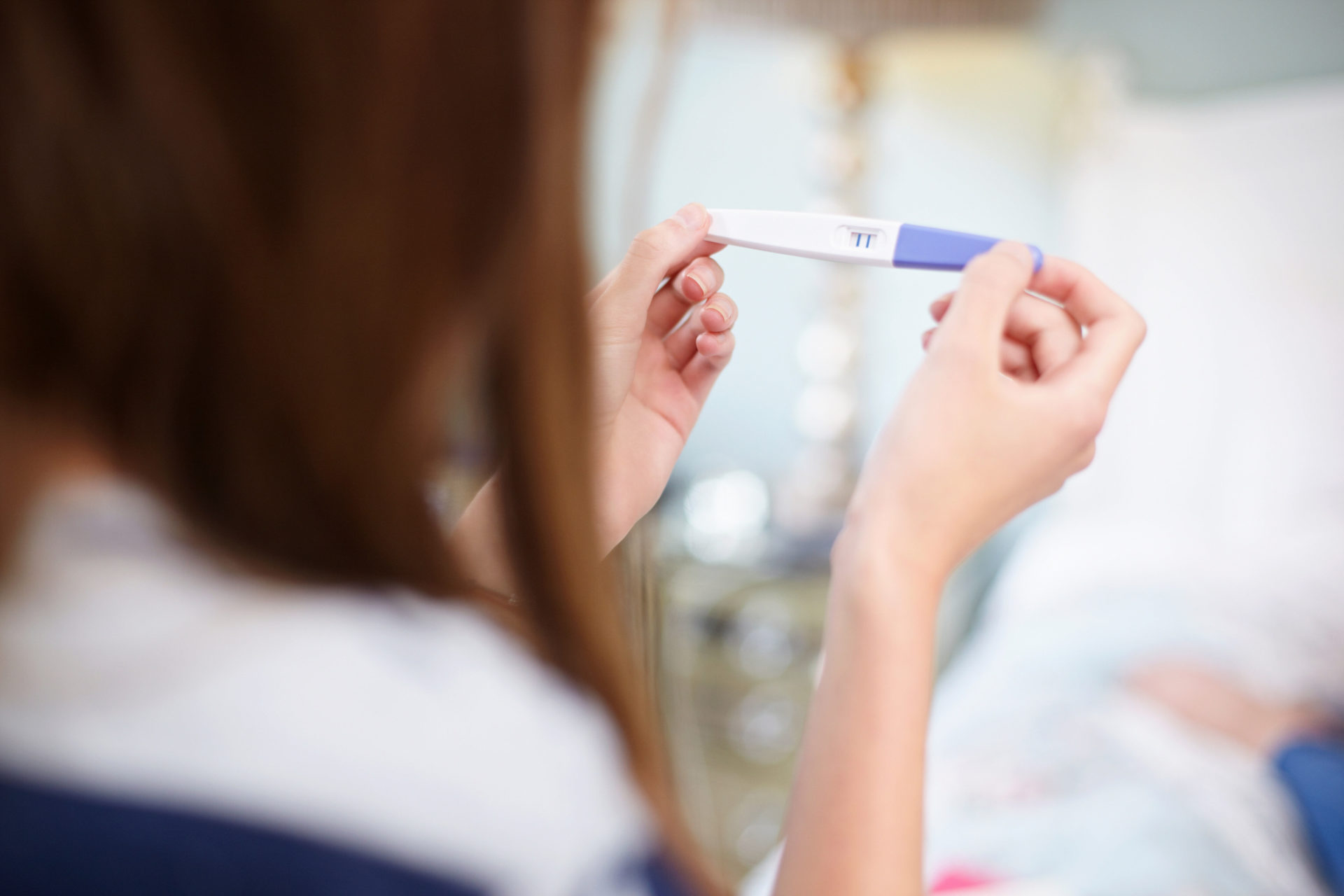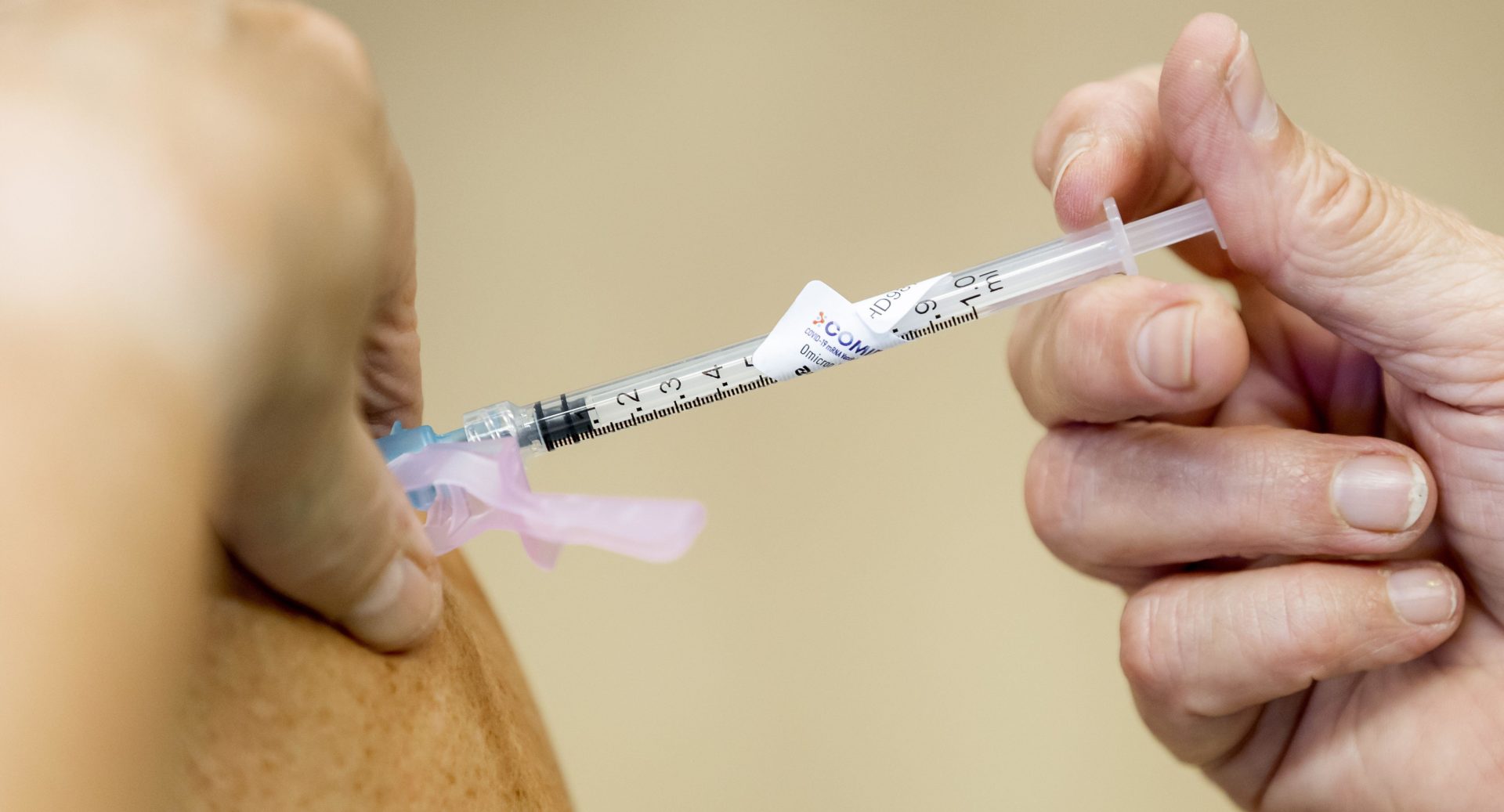People experience different pregnancy symptoms at different times and shouldn’t be worried about keeping up with other pregnant people.
That’s according to Dr Sumi Dunne in this week’s Ask the GP on Lunchtime Live.
Ahead of World Menopause Day on October 18th and as we enter the flu season, most listeners were particularly concerned about hormonal health - and the sniffles.
One woman told Dr Dunne she is five weeks pregnant but hasn’t experienced any symptoms beyond "being quite thirsty”.
“Symptoms are individual,” Dr Dunne said. “It changes with each person.
 Girl holding a pregnancy test. Image: Image Source/Alamy
Girl holding a pregnancy test. Image: Image Source/Alamy“Certainly, things like nausea or breast tenderness might come on earlier if it's a multiple pregnancy because there's more early pregnancy hormones.
“Typically, most people start seeing symptoms around week six, which is normally when people have also realised that they've missed their first period.
“That could be the nausea, it could be the breast tenderness or just a feeling of ‘I don't feel like myself’.”
Bleeding after sex
Another woman in her early 40s asked if it’s normal to begin bleeding after sex.
“I did have surgical treatment about 10 to 12 years ago... or is it pre-menopausal?” she asked.
Dr Dunne said bleeding after sex can happen occasionally.
“In the first instance, it could be some physical irritation just from penetration and having sex,” she said.
“Thereafter, if it's persistent and ongoing, that does warrant investigation.
“Your GP does need to check you to make sure that the cervical architecture or the skin around the entrance into the vagina and that the vaginal architecture is all normal.”
She said a gynaecologist appointment is important to check for pelvic pain, infections and diseases.
Vaccines
Another listener asked if they are in the ‘high risk’ group for COVID-19 and flu vaccines if they had a stem cell transplant 18 months ago.
“If you've had a stem cell transplant, please go ahead and get your COVID and flu vaccine as soon as possible,” Dr Dunne said.
“Clinically, you still remain high risk.”
With many people asking about vaccinating their children, Dr Dunne recommended anyone listening to go to their GP and find out more about getting vaccines this year.
 A person is administered the COVID vaccine. Image: ANP / Alamy Stock Photo
A person is administered the COVID vaccine. Image: ANP / Alamy Stock PhotoShe went on to explain there are certain groups of children GPs don’t recommend getting the flu vaccine.
“If they've got severe asthma and they're quite wheezy, if they're living with someone that has a severe weakened immune system, if they’re taking certain medicines, check with your doctor,” she said.
“If they've taken antiviral medications in the past 48 hours, and if there are any conditions that cause a CSF or a cerebral spinal fluid leak.”









